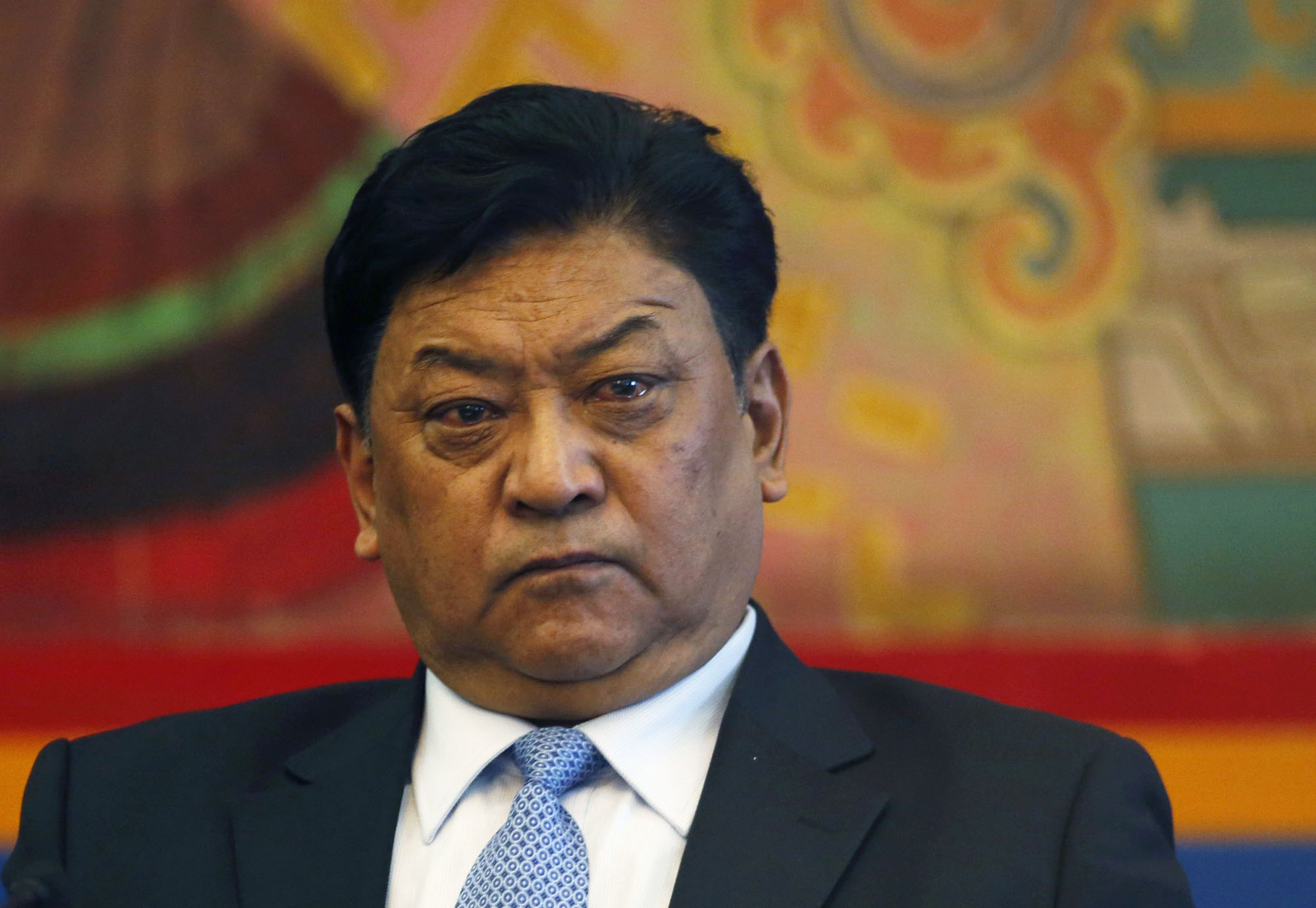
(TibetanReview.net, Mar09’16) – Apart from announcing plans to build a second China-Tibet railway line, Chinese and Tibetan delegates representing the Tibet Autonomous Region (TAR) at the Chinese National People’s Congress, or Parliament, which opened on Mar 5, have condemned any possible visit by the Dalai Lama to Taiwan, vowed to continue to roll out preferential financial policies to boost economic and social development in the region, and expressed determination to make Tibet become one of the world’s top tourism destinations, according to China’s official online media reports.
“We strongly oppose anyone who is in power (in Taiwan) to invite the Dalai Lama to visit the island,” Xinhua Mar 7 quote Padma Choling, chairman of the standing committee of Tibet’s regional people’s congress, as saying at a press conference. This obviously referred to recent media reports in which a possible visit to Taiwan by the Dalai Lama in the context of the recent victory of the independence-inclined Democratic Progressive Party in both the presidential and parliamentary elections was discussed.
“Everyone clearly knows what kind of person the Dalai Lama is,” Padma Choling was quoted as saying, adding, “The Dalai Lama must give up his secessionist stance and stop all activities to split the motherland.”
Also, to make the it become one of the world’s top tourism destinations during the next five years, the TAR government would like to shorten, possibly to less than a week, the time it takes to issue travel permits to foreigners, Hong Wei, the Chinese deputy director of the TAR tourism development commission was quoted as telling a press conference Mar 7. Currently, non-Chinese foreign travelers need a special Tibet travel permits to tour the region, in addition to a Chinese visa.
“Tibet will be more open to domestic and foreign tourists in the next five years. We will simplify the procedure for foreigners to obtain travel permits and cut the waiting time,” chinadaily.com.cn Mar 8 quoted Hong as saying.
Padma Choling has clarified, however, that the permit system will not be abolished completely, claiming it was needed to ensure the safety of the travelers.
Losang Jamcan, chairman of the TAR government, has said at the NPC session that China will accelerate the construction of the 1,629-kilometer Sichuan-Tibet railway starting this year. Nearly 1,000 km of it will be in the TAR. Construction of the western and the eastern sections began last year and the whole project will be completed in the early 2030s, he has added.
China claims the railway will bring development and prosperity to the region, but critics see it, given the socio-economic cost-benefit analysis, that its real purpose is to consolidate internal control over the local Tibetan population and strengthen military infrastructure in a strategic border region.
Another Xinhua report Mar 7 said a circular issued by the central bank and regulators of China’s banking, securities and insurance sectors had promised to continue to roll out preferential financial policies to boost economic and social development in TAR over the next five years. Financial institutions will be encouraged to open branches in TAR and more direct financing and financial bonds are expected to help enterprises in TAR, especially small and micro businesses, the circular was further cited as saying.
Critics say the principal beneficiaries of such policy are not local Tibetans but Chinese immigrants who are sought to be drawn to the region with such offers and who are meant to overwhelm the local Tibetan population.
The NPC, with over 3,000 delegates, is the world’s largest legislative assembly. However, its role is only to serve as a formal seal of approval for the policies already decided by the leaders of the Chinese Communist Party.


